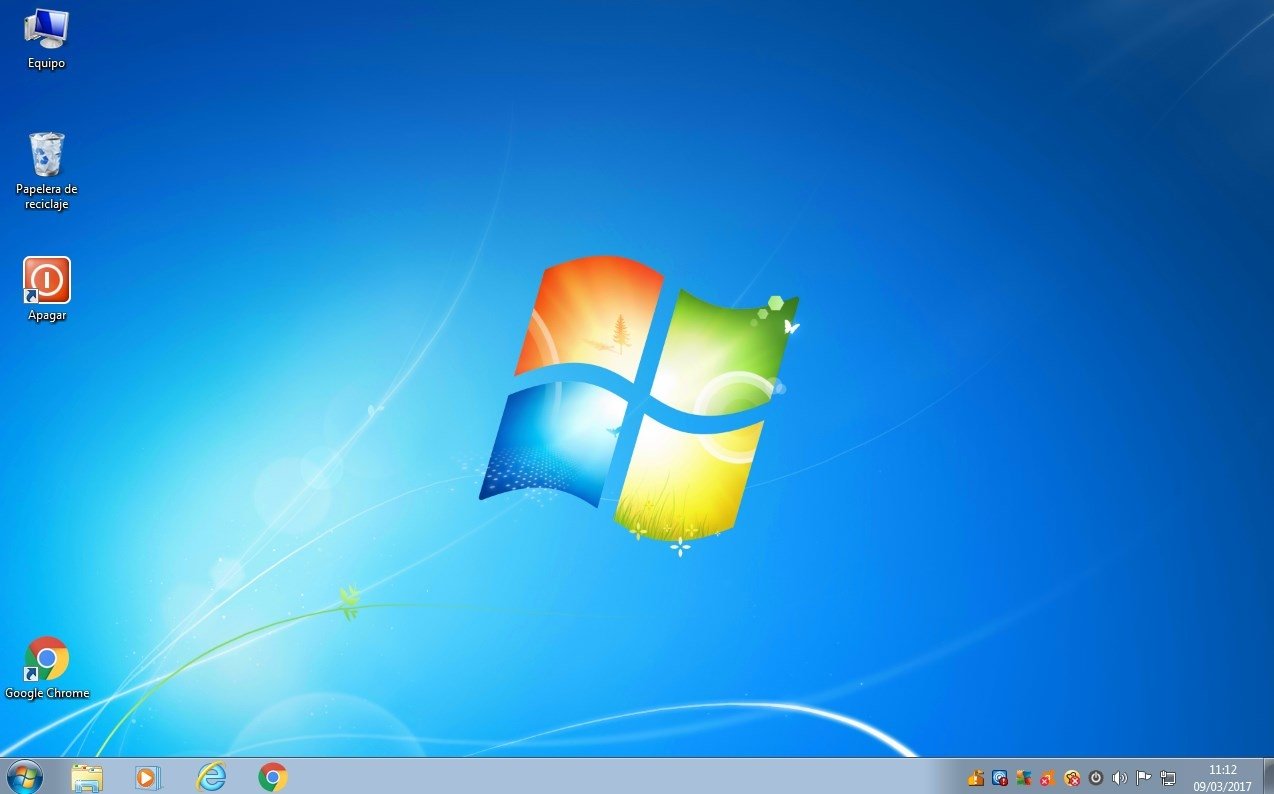
Windows 7 is the new operating system by Microsoft that has arrived to succeed Windows Vista and offer the user improvements at visual and performance level
Windows is without a doubt the most used operating system in the world on personal computers, a long way in front of Mac OS X and Linux, despite the fact that every year somebody comes up with the brilliant idea that it's going to be the year of Linux on the desktop. And Windows 7, the version of Microsoft's OS initially launched in October of 2009 to replace Windows Vista, has been one of the most popular and most highly adopted operating system developed by the guys at Redmond, lightyears ahead of Windows 10, offering visual, performance and security improvements. Easier to use and with many more possibilities. With this Windows, Microsoft returned to the path of success after the failure of Vista, and in view of what appeared later, it wouldn't be crazy to state this is probably their best product to the date. Nobody can be surprised about the reluctance of many users to switch over to W10, even being a free updated. Main features of Windows 7 Professional Windows 7 was received as a mighty evolution regarding previous systems, especially regarding its performance improvements, its greater security and a much more intuitive interface. Here are its general features. Low-consumption operating system, ideal for old computers with less power. Renovated visual aspect with the functions Aero Peek (to preview applications), Aero Shake (to manage windows by shaking them) and Aero Snap (to simplify the resizing of windows). Important security improvements with a new Windows firewall, a complete security suite and a tool to create backups. New multitouch interface to control Windows by means of touchscreen gestures. System customization with the possibility to personalize window colors, sounds, and screensavers. Ribbon interface incorporated to native Windows programs like the calculator, Paint or WordPad. Removal of Windows Sidebar, being able to place gadgets anywhere around the screen. New versions of Windows Media Center and Windows Media Player, compatible with the main multimedia formats (H.264, DivX, MJPEG, DV, AAC, LPCM, MOV, 3GP, WTV, MP4, etc.). New Windows Live Essentials with different communications applications like Live Mail, Live Messenger, Silverlight, LiveSync or Live Movie Maker. Possibility to pin our favorite programs to the taskbar by simply dragging and dropping. Renewal of the native calculator with statistical and programming functions. If you still live in the past with your Windows XP or Vista, or you're just not too keen on the new Windows 10, the best thing you can do is download Windows 7 to your PC, the ideal operating system for personal computers on which your going to combine leisure and work. However, take into account that whenever Microsoft fancies, it will stop supporting this OS and will forget about implementing security improvements, so you won't be able to update it. In any case, don't expect to download the ISO of this software for free because, even if there already newer versions available, you'll still have to pay its full price. Editions and updates Just a year after its initial release, it received its first major update, Service Pack 1 (SP1) that corrects certain errors and security issues found in its code. Furthermore, it also comes along with different versions that adapt perfectly to the needs of every kind of users: Starter: the most basic version with the least functions. Home Basic: more connectivity and customization functions, although only available in OEM versions in countries under development and emerging markets. Home Premium: includes Windows Media Center, full Aero theme, and support for different codecs for multimedia file formats. Professional: includes data protection, advanced backups, network management with support for domains, local network printing, and file encryption. Ultimate: more security and data protection on internal and external storage device, multilanguage package, and support for virtualized images of hard drives. Enterprise: additional features for the assistance of IT organizations. Option to subscribe to the desktop optimization package MDOP. N Editions: available for updates and new purchases of Home Premium, Professional and Ultimate, but doesn't include multimedia software. Minimum requirements What hardware configuration is necessary to run Windows 7 on a PC? Don't go too mad trying to figure it out, here are the technical specifications necessary on your computer to make it run appropriately: 1 GHz CPU. 1 GB of RAM, although 2 GB are highly recommendable. Screen with a minimum resolution of 800x600 with optional multitouch function. Graphics card compatible with DirectX9 and controller WDDM 1.0 or above. Windows Aero requires 128 MB of VRAM. 16 GB of free space on your hard drive, although 20 GB are recommended. These requirements are appropriate for a 32-bit processor, however the recommended specs are necessary for 64-bit versions.
Windows 7 The successor of Windows Vista
2.3 GB | Windows | PAID


0 komentar: